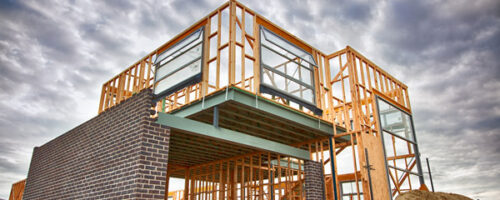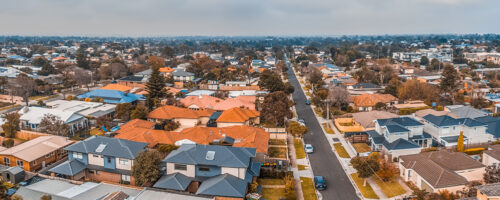First Home Buyer Advice
A Practical Guide to Building Your First Home
At First-Place, we recognise that navigating the real estate market for your first home can be both exciting and overwhelming. As an established building company with over 40 years of experience, we understand your challenges and concerns.
Getting Started
First Home Buyer Advice Tip No.1 - Financial Preparation
Preparing your finances and establishing a budget is crucial when purchasing your first home.
Here are 10 steps to guide you as you get started:
1. Review Your Finances
Begin evaluating your financial situation by examining your income, expenses, debts, and savings.
2. Set a Realistic Budget
Create a comprehensive budget outlining all of your monthly income and expenses.
3. Determine Affordability
Use online calculators as a starting point, and consult a financial advisor to determine how much you can afford.
4. Save for a Deposit
Start saving for a deposit, which is typically a percentage of the home's purchase price.
5. Check Your Credit Score
Obtain a copy of your credit report and check your credit score. A higher credit score often leads to better mortgage interest rates.
6. Reduce Outstanding Debt
Aim to pay down high-interest debts, such as credit cards or personal loans, as this can positively impact your debt-to-income ratio and improve your overall financial standing.
7. Research Different Mortgages & Lenders
Familiarise yourself and ensure you understand the terms and conditions associated with each option, such as fixed-rate versus adjustable-rate mortgages.
8. Get Pre-Approved for a Mortgage
Getting pre-approval for a mortgage helps you understand the loan amount you qualify for. This can help you narrow down your home search and make more informed decisions.
9. Factor in Additional Costs
Keep in mind there are usually additional costs associated with buying a home and plan for these expenses in your budget to avoid any financial surprises.
10. Establish and Emergency Fund
Establish or boost your emergency fund to cover unexpected expenses related to homeownership. This fund can also provide a financial safety net and prevent you from relying on credit in times of need.
First Home Buyer Advice Tip No. 2 - Set A Realistic Budget
Establishing a realistic budget at the beginning of your homeowner journey is essential. It equips you with a clear financial roadmap, allowing you to navigate building costs comfortably, avoiding stress or financial strain. A well-defined budget helps you make informed decisions, stay on track, and enjoy the homeownership process with confidence.
First Home Buyer Advice Tip No. 3 - Provide for Additional Costs
When buying a home for the first time, it's important to consider additional costs beyond the purchase price. Here are some common additional costs for first-time homebuyers:
These may include:
Legal Fees
You can anticipate legal fees when engaging a solicitor or conveyancer for property transactions, including contract review to ensure a seamless settlement process.
Conveyancing Fees
Conveyancing is the legal transfer of property ownership, and conveyancing fees cover services such as contract handling and necessary searches provided by a conveyancer or solicitor.
Transfer Duty (Stamp Duty)
Buyers are required to pay transfer duty, commonly known as stamp duty. This is a state-based tax on the property transfer and is calculated based on the property's purchase price.
Registration Fees
These fees cover the registration of the property title with the relevant land titles office. The cost varies by state and territory.
Bank and Loan Fees
When securing a mortgage, you can expect costs like application, valuation, and loan establishment fees.
Home Inspection & Building Reports
It’s recommended to conduct a building inspection and obtain relevant reports on the property's condition. These reports may incur additional costs.
Insurance
In addition to homeowner's insurance, you may also need to consider mortgage insurance if your deposit is less than 20% of the property's purchase price.
First Home Buyer Advice Tip No. 4 - Accessing Your First Home-Owners Grant
The Victorian Government's First Home Owner Grant eases the path to homeownership for first-time buyers. If you're buying or building a new home valued at up to $750,000, you can check your eligibility for the $10,000 grant here
First Home Buyer Advice Tip No. 5 - How to Choose the Right Builder for Your New Home
Choosing the right builder for your new home is vital. Consider the following factors:
✓ Years of Expertise and Experience
Reputable builders offer extensive experience and expertise. They understand the complexities of construction, local building codes, and effectively handle challenges. At First Place, with a combined 40 years in the industry, we provide top-class building services to our customers.
✓ High Quality Craftsmanship
At First-Place, our commitment to delivering top-tier craftsmanship ensures that your home meets or exceeds industry standards.
✓ Financial Stability
Choosing a financially stable builder reduces the risk of project delays or disruptions caused by financial issues. A stable builder is more likely to maintain strong relationships with suppliers and subcontractors, ensuring a smooth construction process.
✓ Clear Communication
Clear and transparent communication is vital for a successful construction project. The best builders maintain open lines of communication, keeping you informed about the progress, any issues that arise, and potential solutions.
✓ Customisation and Design Input
Top builders work closely with clients to understand their needs and preferences. They offer valuable input during the design phase, helping you make informed decisions that align with your vision for the new home. First Place Builders offer a range of customisation options to tailor your home to your specific needs and preferences.
✓ Long-Term Investment
Building a home is a significant long-term investment. Choosing the best builder ensures that your investment holds its value over time, contributing to your new home's overall satisfaction and enjoyment.
First Home Buyer Advice Tip No. 6 - Questions to Ask Your Builder
1. Can you tell me your experience in building homes, particularly for first-time homeowners?
2. Can you provide references or examples of your previous work on similar projects?
3. How familiar are you with local building codes and regulations in the area where I plan to build my home?
4. What is your estimated timeline for completing a project of this scale?
5. Can you break down the costs of building my home, including any potential additional expenses?
6. How do you handle changes or modifications to the original building plan, and what are the associated costs?
7. What kind of warranty or guarantee do you offer on your work and the materials used?
8. Are you licensed and insured, and can you provide proof of both?
9. How do you communicate with clients throughout construction, and can I expect regular updates?
10. In the event of unforeseen issues or delays, what is your process for addressing and resolving them?
First Home Buyer Advice Tip No. 7 - How to Plan Your Dream Home
At the outset, defining your wants and needs is essential when building your first home. Identify essential features that cater to your lifestyle (needs) and those that enhance your preferences (wants).
Consider factors such as the number of bedrooms, location, layout, and specific amenities aligned with your priorities. Prioritise aspects crucial for daily life while accommodating personal preferences to create a home that suits your needs and aspirations.
First Home Buyer Advice Tip No. 8 - Customising Your New Home
Customising your first home is an exciting and transformative part of the home-buying journey. Partnering with reputable and experienced builders, such as First Place Builders, lets you personalise and customise your home to align with your unique vision and preferences. From selecting floor plans and architectural features to choosing finishes and fixtures, the customisation process enables you to create a home that reflects your personality and lifestyle.
First Place Builders offers a range of customisable options and design features to meet first-time home buyers' diverse needs and preferences. Whether you aspire to a modern, open-concept layout or prioritise energy-efficient and sustainable design elements, their expertise and commitment to quality craftsmanship can bring your vision to life.
First Home Buyer Advice Tip No. 9 - Choosing Your Location
Choosing where to build is one of the biggest factors when building your house. Here are some aspects to consider:
Location & Commute
Check the neighbourhood's proximity to work, schools, transportation, and major roads, ensuring it aligns with your lifestyle and daily needs.
Services & Amenities
Evaluate neighbourhood amenities, including schools, hospitals, grocery stores, parks, and recreational facilities.
Safety and Security
Research the neighbourhood's safety record, including crime rates, street lighting, and security programs.
Future Development and Appreciation
Investigate any planned developments or infrastructure projects in the area. Understanding the potential for future growth can impact the long-term value of your property and the overall desirability of the neighbourhood.
Community
Immerse yourself in the neighbourhood by attending events, engaging with other residents, and observing the vibe. This will contribute to a strong community atmosphere, enhancing overall satisfaction with your new home.
First Home Buyer Advice Tip No. 10 - 5 Common Mistakes First Time Home Buyers Make & How to Avoid Them
1. Relying Solely on On-Line Calculators
Relying solely on online calculators can be unrealistic as they often provide generic estimates, overlooking critical factors like credit history and regional cost variations.
What To Do Instead
Supplement online tools with professional financial advice and consult with mortgage experts for personalised insights based on your unique circumstances and local market conditions.
2. Not Checking Credit Reports
By not reviewing your credit reports, you could run into potential issues when applying for a mortgage.
What to Do Instead
Obtain your credit reports early, address any errors, and work to improve your credit score before applying for a mortgage.
3. Skipping Pre-Approval Process
House hunting without getting pre-approved for a mortgage can lead to disappointment and delays.
What to Do Instead
Get pre-approved to understand your budget and strengthen your position when offering a home.
4. Not Allowing For Additional Costs
Only focusing on the purchase price and not taking into consideration any additional costs like settlement fees, property taxes, and maintenance expenses.
What to Do Instead
Thoroughly research and budget for all associated costs to avoid financial strain after the purchase.
5. Not Considering Future Changes
Buying a home without considering future needs, such as family growth, can lead to outgrowing the space quickly.
What to Do Instead
Plan for potential life changes and choose a home that accommodates both current and future needs.
Purchasing your first home is a significant and transformative experience that requires careful planning, preparation, and informed decision-making. By understanding the home buying process, preparing financially, and leveraging the expertise of professionals, first-time buyers can navigate this milestone with confidence and clarity. Finding the right home and builders sets the foundation for a fulfilling homeownership journey. Contact one of our friendly consultants today and learn how you can turn your dream home into a reality.




















